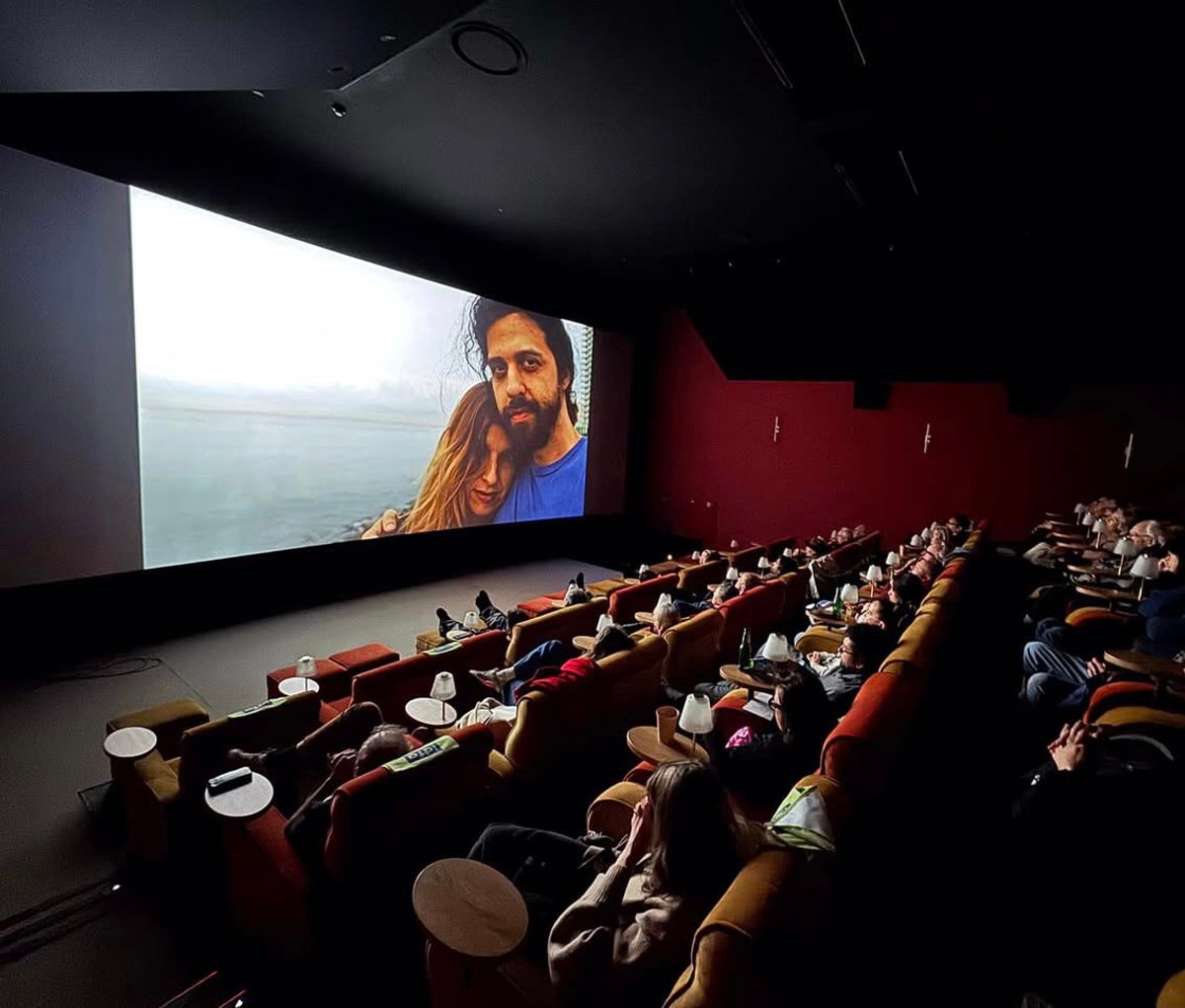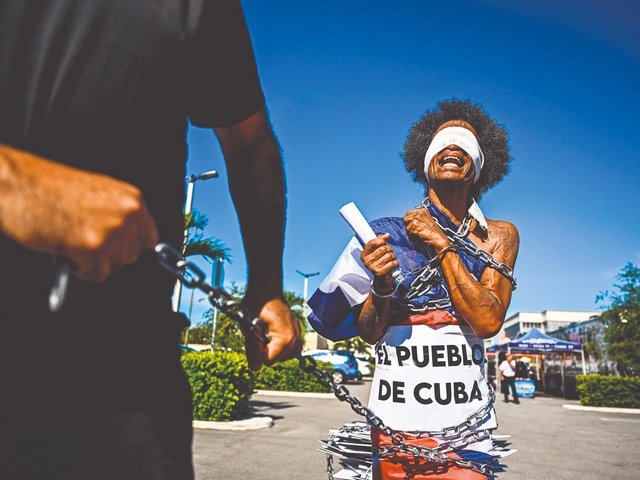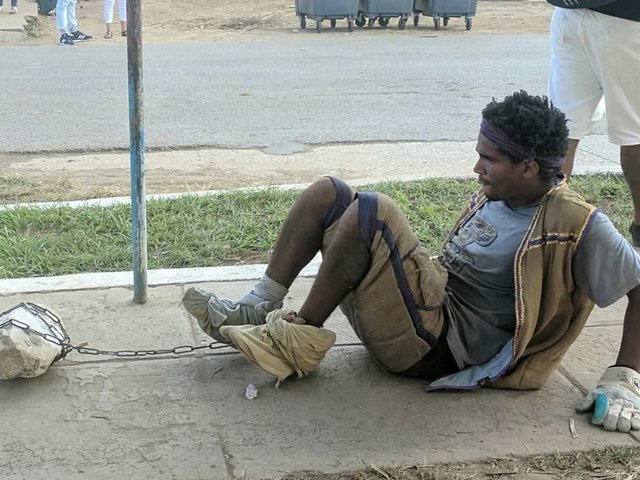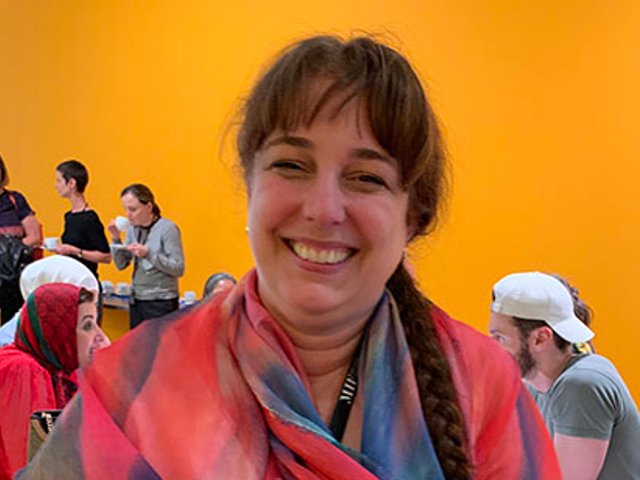The aptly titled Cuban film Chronicles of the Absurd won a top prize in November at the International Documentary Film Festival Amsterdam (IDFA), the world's largest documentary film festival. The film begins with a quote by the writer Virgilio Piñera: "Had Kafka been Cuban, he'd have been a non-fiction writer.” As an inside view of artists' interactions with an oppressive government, the documentary will likely never be screened in its home country.
Directed by Miguel Coyula—known for Memories of Overdevelopment and Blue Heart—Chronicles comprises clandestine audio recorded on hidden cell phones by artists interrogated by state security officials at great personal risk. The audio conversations are presented and transcribed on screen without any voiceover explanations or even much visual context.
“It's just the facts,” Coyula tells The Art Newspaper. “There are no opinions about it, it's just the recordings of the events—the language, which is really what the film is about. You have to imagine all the locations and the actions in this dark void.”
The transcribed words are often enlarged when the speaker is excited, emphasised with colour in El Lissitzky-like fashion and accompanied by a portrait when the speaker is known. When an official of the Cuban government speaks, often under a pseudonym, Coyula animates the late Expressionist painter Antonia Eiriz's (1929–1995) Goya-like grotesques.
Coyula’s partner, the actress Lynn Cruz (whom he cast in Blue Heart) plays a pivotal role in Chronicles. For any artist to practice their craft in Cuba, they must belong to the designated government-run union for their art form—there are separate ones for filmmakers, visual artists, writers, architects and musicians—otherwise their work is technically illegal. Cruz had been represented by the state’s performing-arts union but was dropped in 2018, likely because of her outspoken criticism of the government in a regular column she wrote for the Havana Times. Cruz decided to record her hearings and trials as a protective record of what transpired, and because her dismissal meant she was unable to work in Cuba anymore.
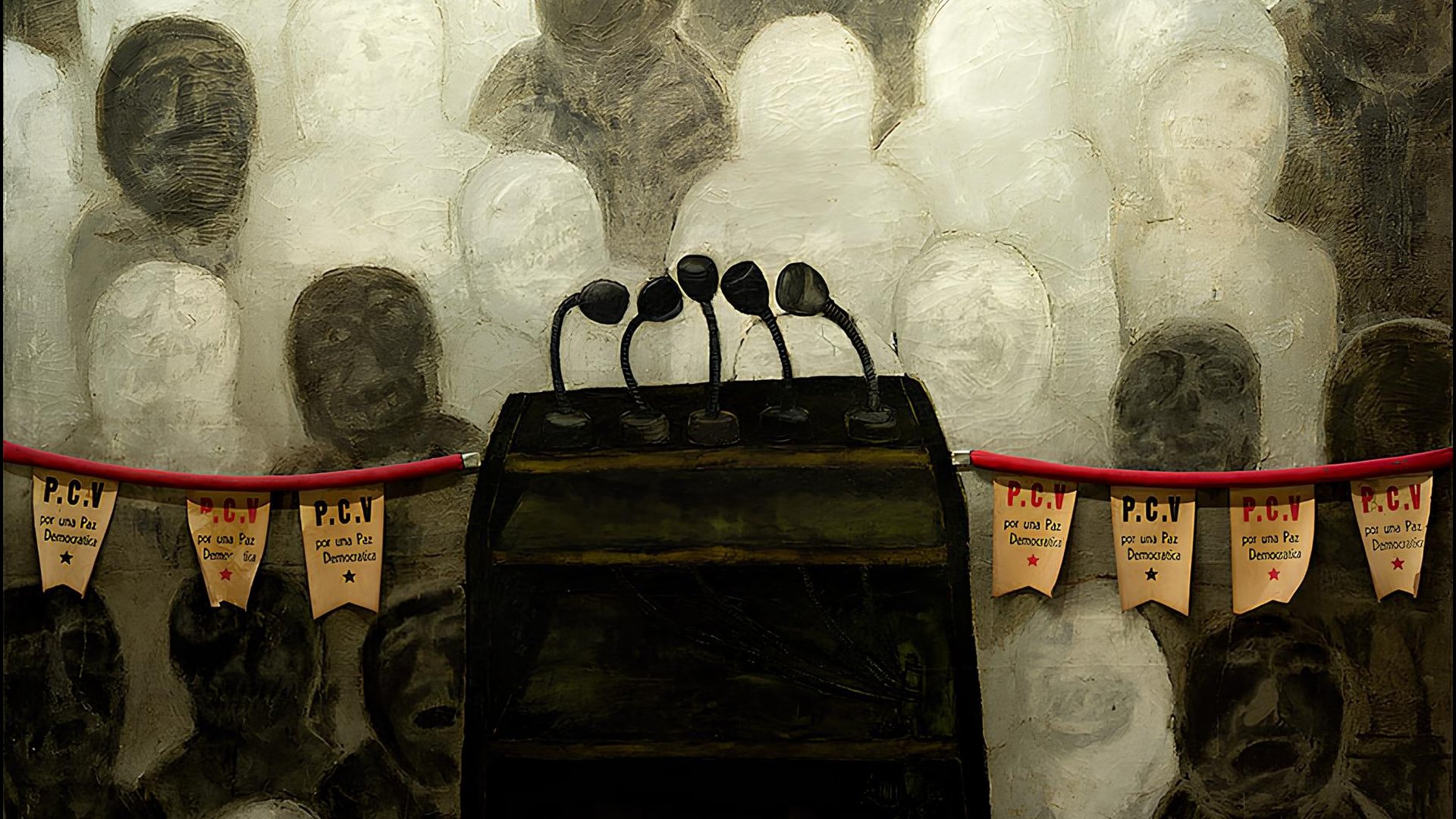
Antonia Eiriz’s Una tribuna para la paz democrática (1968)
Cruz’s contretemps are central to Chronicles: first over the work issue, and again against the medical establishment when her father’s inferior hospital care during the Covid-19 pandemic leads to his death (she believes his care was compromised because of her own reputation).
Cruz is also crucial to the brave recordings of Javier Caso, a Cuban photographer based in Brooklyn who, while in Cuba, accompanied Coyula and Cruz on a shoot for Blue Heart, where he took informal production stills. Two days later, Cuba’s ministry of immigration brought him in for questioning. Although he turned his cell phone in to the authorities, he had a second phone “strapped on his chest. You can hear his heartbeat as he walks into the office,” Coyula says. Perhaps being the older brother of the actress Ana de Armas protected Caso—a fact that officials were sure to mention in a particularly chilling interaction.
This is just one example of the kinds of exchanges with Cuban officials Chronicles brings to light. There is also an instance in which state security shut down an entire street to prevent a film screening or when it cut off electricity to stop an unauthorised rock concert on an apartment balcony. A collaboration with the artist Tania Bruguera is brought under scrutiny at one point. Then there are all the controversies surrounding Blue Heart, a film that took ten years to complete.
Coyula says that before 2019, independent filmmaking in Cuba was “in sort of a legal limbo”. But that year, the government passed Decree 373, requiring approval, and providing funding, for every film project in the country. “I didn't sign up for that,” Coyula says, adding that he could not have made any of his films under the stringent rules this would have demanded. “How can the film industry give you an ID as an independent filmmaker? I always felt the only way to be an independent filmmaker is not just that we always finance them from our pockets, but being independent in form and content—that's the true spirit of it.”
Coyula says that, as a result, there has always been a danger that he (and Cruz) would not be permitted to go back to Cuba. The couple were able to return after attending the IDFA were but questioned at length at the airport. Nevertheless, they choose to remain in Cuba rather than emigrate, as many other artists have done. Coyula, who lived in New York for ten years, says he cannot criticise the country from abroad and that it is important for him to live in his homeland.
“To me, it’s not patriotic nationalism. It’s more a sensorial experience—a view of the ocean from the window of the apartment I was born in, the street, the Malecón, the smells,” he says. “Making films is my reason to live. I wake up every morning and I go to sleep knowing that at least I have control in making films.”


